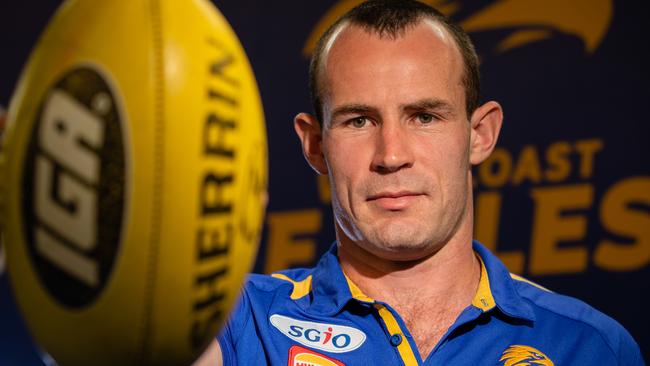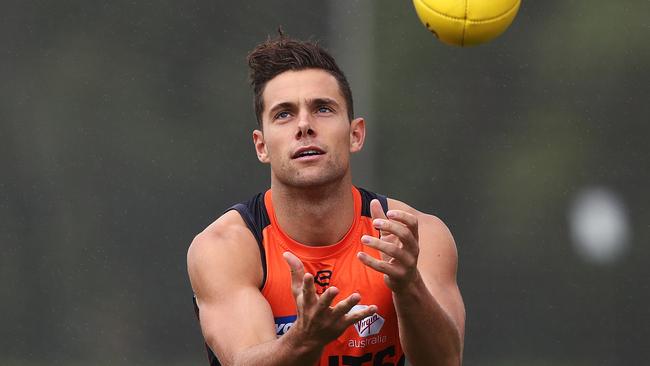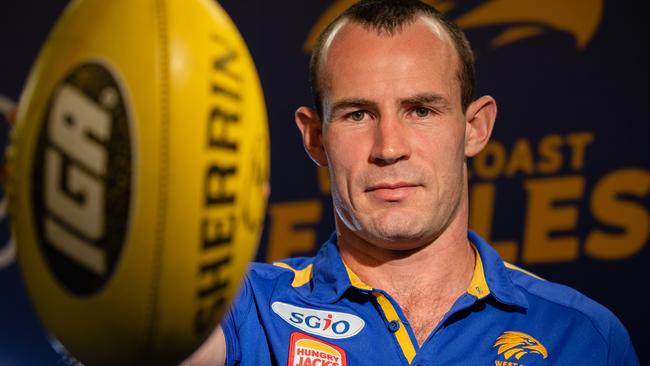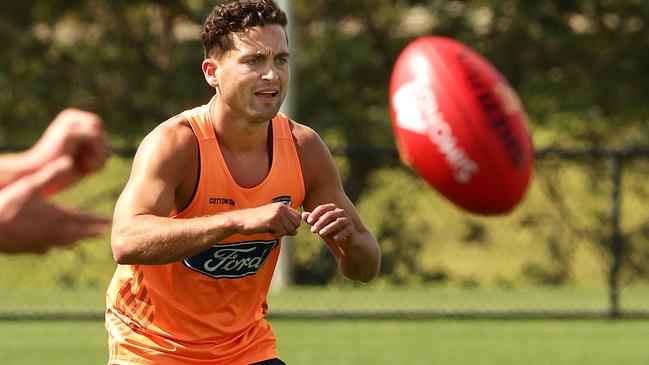The psychology of SuperCoach trading
When you make a SuperCoach trade, you need the best information available. But beware there are factors influencing your decisions that you might not even be aware of.

Supercoach
Don't miss out on the headlines from Supercoach. Followed categories will be added to My News.
As we make our way towards the byes, trades are quickly diminishing as SuperCoaches try to complete their teams with superstars.
However, as we weigh up the pros and cons of each potential move there are factors influencing our decisions that we might not be aware of, in the form of inherent biases.
TRADE GUIDE: WHY YOU NEED TOP DOG
MARKET WATCH: OLIVER BACK IN A BIG WAY
RAGE TRADES: LIBBA ON CHOPPING BLOCK
The expert team at ‘Doctor SuperCoach’ have put together a short list of the biases that may play the largest part in your selection processes each week.
CONFIRMATION BIAS
Confirmation Bias is the cognitive bias that most people are probably aware of, however, that doesn’t stop it from influencing them and their decision making. It involves favouring information that backs up views and beliefs you already hold, while ignoring other information that may contradict your opinion.
This is commonly seen in SuperCoach in a few different ways. An example may be when you read an article discussing the top trade-in options for the week — you are more likely to focus on the supporting evidence that the player you are looking at trading in is in fact a good pick. This can be dangerous when there are many options presented and you unfairly dismiss the other alternative choices.

LOSS AVERSION
Loss aversion is a psychological tendency to favour avoiding losses rather than obtaining equivalent gains. In SuperCoach terms, this means that it hurts more to trade someone out who proceeds to score 150 points, than the happiness you feel when the player you have traded in scores 150 points.
But how does this affect our future trades? This tendency may make coaches scared to trade out a player who is capable of scoring very large scores on any given day, just in case that is the day that they do score well. Or in a situation in a keeper or draft league, where there are many coaches that are too scared to trade with anyone.
THE SCARCITY HEURISTIC
The scarcity heuristic is one of the largest hurdles to overcome in SuperCoach. It is the mental shortcut where when an object or resource is less readily available, it is perceived to be more valuable.
So when and how does this affect us in SuperCoach? It affects us at the very beginning with our starting teams and probably less so as the season progresses. This occurs when we overvalue the more expensive SuperCoach players and undervalue the cheaper options. We do this just based on their price, knowing that fewer people will be able to afford the most expensive players.
This does make some sense, as the expensive players are expensive for a reason, due to scoring particularly well in the previous season or in a current rich vein of form. However, sometimes a cheaper player with similar form will be overlooked purely because of price – which defeats the purpose of trying to get a bargain!

This also leads some coaches to select a team with almost all of the high-priced premium players and overlooking players that are about $50,000 less than the top-line premium players. For example, Shannon Hurn was in very few starting teams even though there were many logical reasons suggesting he would be a good pick this season.
Lastly, in terms of captaincy choices, the scarcity heuristic is a large reason as to why coaches often choose their most expensive player to captain, even if they are in a bit of a form slump. Players like Tom Rockliff, Travis Boak and Tim Kelly are rarely in the captaincy conversation – not entirely due to the scarcity heuristic, but it could definitely play a part.
THE GAMBLER’S FALLACY
The gambler’s fallacy is something to desperately avoid during your SuperCoach seasons. Trading in someone because they are “due” for a big score is a common mistake coaches make.
The gambler’s fallacy is this concept of a player being “due” to score well, if they have scored worse than expected over a period of time. This can also be true in the reverse form, where a player has continually scored well and coaches believe they are “due” for a poor score. An example of gambler’s fallacy this season could be the mindset of owners of Josh J Kennedy expecting a large haul from him soon, since he has yet to register a major haul in season 2019.
RECENCY BIAS
Recency bias is definitely something that all SuperCoaches have succumbed to at some stage and is the hardest bias to judge appropriately. It involves focusing disproportionately on the most recent information, often called out as “chasing points”.
However, it is very difficult at the time of trading to judge whether a player is “breaking out” and living up to their best potential, or if they are simply in a hot vein of form and will revert back towards their average. For example, those that traded in Luke Dahlhaus after his three tons to start season 2019 may have overlooked his not-so-friendly SuperCoach role in the Geelong side after being seduced by his high numbers (he has averaged 80.2 since Round 3).

Recency bias can also take a different form when selecting teams at the start of the season. Due to the recent success of Clayton Oliver last season, many coaches were on the hunt for the next midfield bargain that could “break out” and average 110-plus. Realistically, this was incredibly unlikely to happen and some coaches who took punts ended up with a few wasted trades.
Similarly, due to the many failures of mid-price players in 2018, many SuperCoaches were afraid to start more than a handful in 2019, without fully judging the player’s on their merits. This is another way recency bias had an effect on our starting teams.
Get more expert advice from the Doctor SuperCoach team here and listen to their latest podcast below:
Originally published as The psychology of SuperCoach trading


